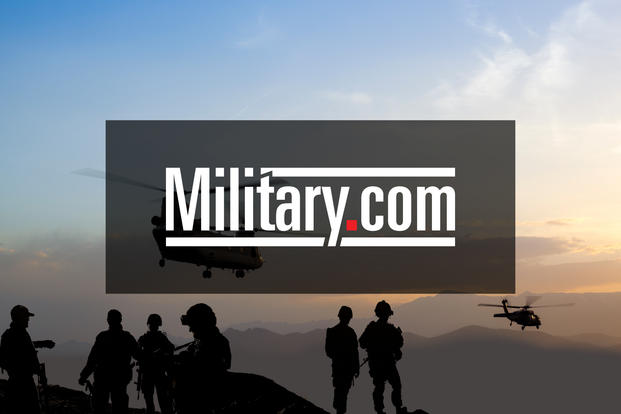U.S. lawmakers voted to continue paying troops as part of a last-minute budget deal before the midnight deadline that saw the Congress fail to pass a budget forcing the government to shut down.
The first federal government shutdown since the mid-1990s will have immediate and far-reaching impacts to the military and veteran communities. While service members will still report to duty, about half of the Defense Department’s civilian workforce – some 400,000 workers – will be forced to stay home and take mandatory unpaid leaves of absence, known as furloughs.
Stateside commissaries will close after Oct. 1, routine medical appointments for troops and their family members may be delayed or canceled, and veterans’ benefits – from pension payments to call centers – could be postponed.
“The fact that funding for VA benefits could disappear in a month ought to be incentive enough for our elected leaders to achieve a solution,” said Daniel Dellinger, national commander of The American Legion. “Our federal government must never put veterans in this kind of position.”
The Democrat-controlled Senate on Monday followed the Republican-controlled House of Representatives in approving legislation to protect troops’ paychecks despite a shutdown. President Barack Obama later signed the measure.
The bill would also shield pay for civilians and contractors who provide “support to members of the Armed Forces,” though it’s unclear how Defense Secretary Chuck Hagel will make that determination.
Congress, however, was unable to agree on a stop-gap funding measure to keep federal agencies open beginning Oct. 1, the start of the government’s fiscal year.
The House voted for a bill that would temporarily fund the government but withhold money for President Obama’s signature health-care law, the 2010 Affordable Care Act, commonly known as Obamacare.
That provision was rejected by the Senate. The House then sought to delay a key part of the health-care legislation known as the individual mandate, which requires individuals to obtain health insurance or pay a fine. That, too, was defeated in the Senate. The deadlock resulted in the first government shutdown since early 1996.
Military operations in Afghanistan, including the drawdown of U.S. troops and equipment, will continue, a senior defense official said last week. But death benefits for survivors of service members killed in the country will probably be delayed, the official said.
Some non-deployed military personnel will have to perform the work of furloughed civilians, most temporary duty travel will be canceled, and National Guard members and reservists will see inactive duty training curtailed, according to contingency plan guidance the Pentagon released last week.
Defense contractors will also be affected. The Pentagon won’t award new contracts or funding for partial awards or for cost-overruns, except in certain circumstances, according to the guidance.
“No funds will be available to pay such new contract or place additional increments of funding on contracts until Congress appropriates additional funds,” it states.
The Pentagon plans to continue funding a number of activities designed to protect life, property and national security, from war-related operations, to fire and emergency-response services, to inpatient care at military hospitals. Moves associated with recruitment and initial entry training will continue.
Schools run by the Department of Defense Educational Activity will also continue to operate as usual. Employees at the school and district levels will report to work, and students will continue to attend school. Student activities, including athletics, won’t be affected. However, employees at area offices and headquarters may be furloughed.
About 4 percent of the Veterans Affairs Department’s workforce – some 14,000 employees -- will be furloughed. More than half of those workers will come from the Veterans Benefits Administration, charged with clearing several hundred thousand backlogged claims.
"Veterans' call centers and regional offices would be closed immediately, effective immediately," White House spokesman Jay Carney said Monday during a press conference before the shutdown. "So those services that help veterans understand their benefits … would be closed."
Veterans' business support centers also would cease operating immediately, he said, while vocational rehabilitation and education counseling would be limited. And should the shutdown extend into the later part of October, VA compensation, education and other benefits would ‘be cut off.'"
As a government shutdown appeared more and more likely throughout the day, officials on bases and posts across the Defense Department prepared for its fallout.
The Army’s Maneuver Center of Excellence at Fort Benning, Ga., was still finalizing its plan Monday, but training will continue, Benning officials said. Benning is one of the Army’s Basic Combat Training centers and is also responsible for advanced individual training for infantry and armor jobs.
Fort Bragg, N.C., the home of the 82nd Airborne Division, plans to put about 38 percent of its civilian workforce on furlough if the shutdown goes forward, Bragg officials said Monday.
Fort Campbell, Ky., the post that houses the 101st Airborne Division (Air Assault), is taking a similar approach to support its soldiers.
“In matters of life, health and safety, as well as in maintaining our national security, we’re going to continue normal operations and mitigate negative impacts as best we can,” said Fort Campbell Garrison Commander Col. David “Buck” Dellinger, in a Sept. 30 press release.
“Essential services such as utilities, law enforcement and fire services, hospital emergency room services and soldier training and operations in direct support of national security and preparation for deployment will not be affected,” said Dellinger.
Army Air Force Exchange Service Manager Steve Martin said the post exchange and its operations should not be affected because the PX is largely funded through non-appropriated funds. However, he did note that “some transactions may be delayed, such as the purchase of firearms, which require background checks or other federal government actions.”
Military.com associate editor Bryant Jordan contributed to this report.


























